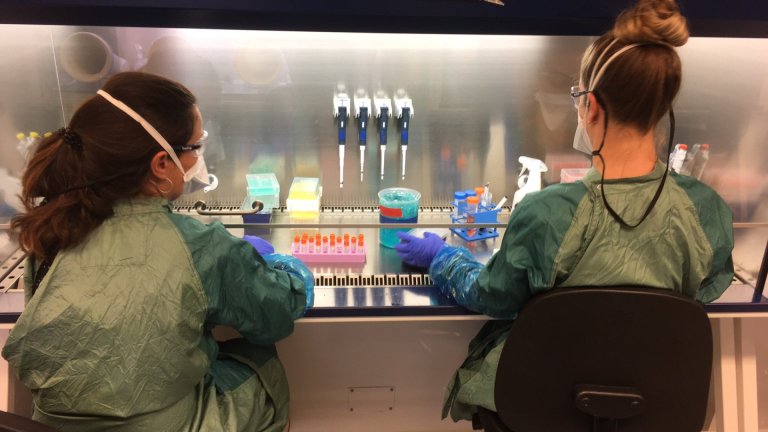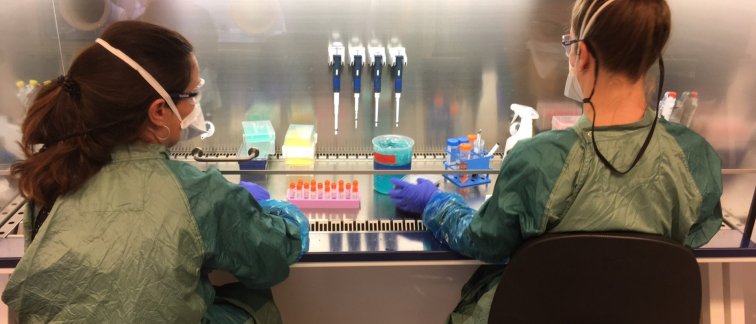Laboratory are working on the study with the blood thinners and the coronavirus. Puff Such blood thinners have long been used to treat bloSpecific sugars, used in the clinic as blood thinners, block infection with the coronavirus and its spread. Researchers from Amsterdam UMC showed that the virus has to bind to so-called heparan sulphates in order to cause infection. Blood thinners stop this binding. This pre-clinical study was published today in the EMBO Journal. The possibility of developing a 'puff' to prevent infection with the virus that causes covid-19 is currently being investigated.
Researchers Marta Bermejo-Jambrina and Julia Eder, under supervision of Theo Geijtenbeek, discovered that heparan sulphates are involved in infection with the coronavirus. These sugar structures are found on all cells of the body. The researchers showed that the virus first binds to them, after which it infects the cells. In addition, through these sugar structures, it 'sticks' to immune cells that circulate in the body, so that it spreads throughout the body. So the coronavirus uses heparan sulphates for infection and spread.
Small sugars
The researchers found that this interaction is prevented by small pieces of heparan sulphates, called low-molecular-weight heparins. These are used in the clinic as blood thinners. Treatment of the virus with these blood thinners prevents the coronavirus from entering the epithelial cells of the nose and spreading to other cells. The researchers argue that these blood thinners can be used to prevent infection with the coronavirus. Researchers from the Experimental Immunology Laboratory are working on the study with the blood thinners and the coronavirus.Researchers from the Experimental Immunology od clots in cases of thrombosis, strokes and infarcts.

Currently, it is being investigated whether a 'puff' of low-molecular-weight heparins in the mouth and nose can prevent infection with the coronavirus. Because it is a general mechanism of infection, these blood thinners could block different variants of the virus, according to the researchers. Risk groups in which vaccination does not work may benefit from this. This new method can also be used in the event of an outbreak of new virus variants for which no vaccines are available or against which current vaccines are insufficiently effective. Photographs: Experimental Immunology Laboratory

